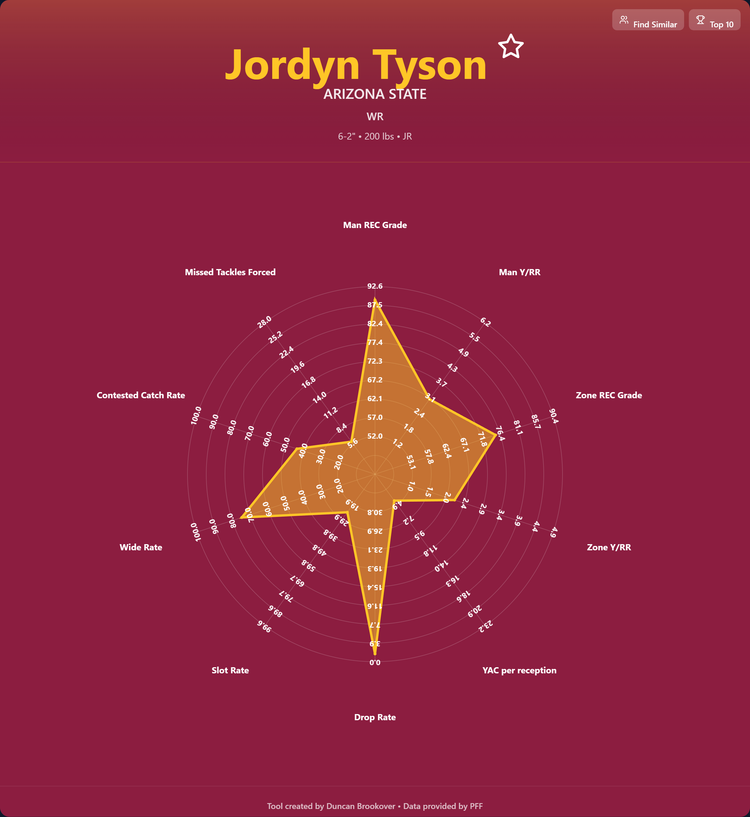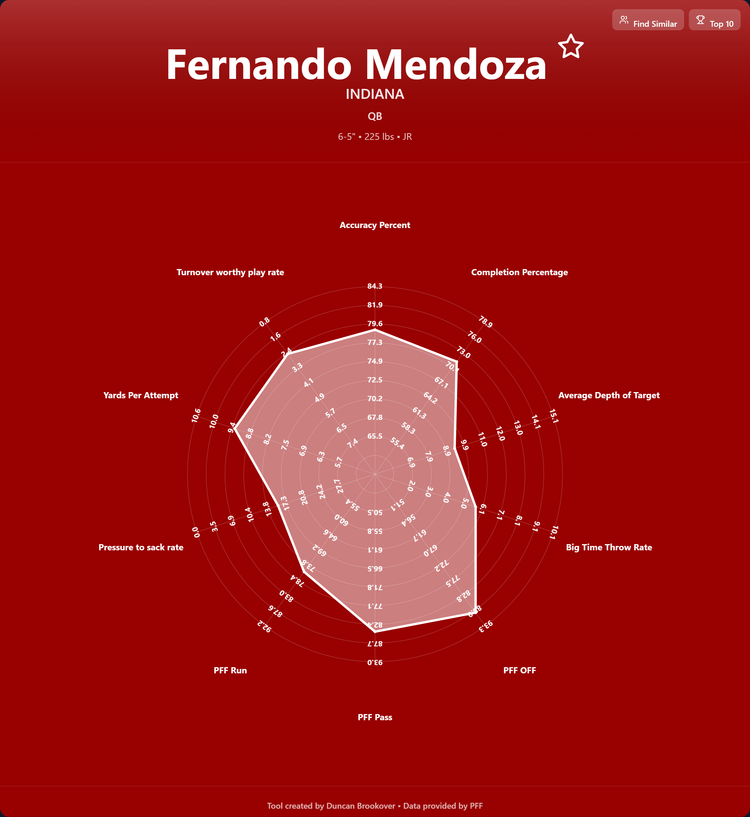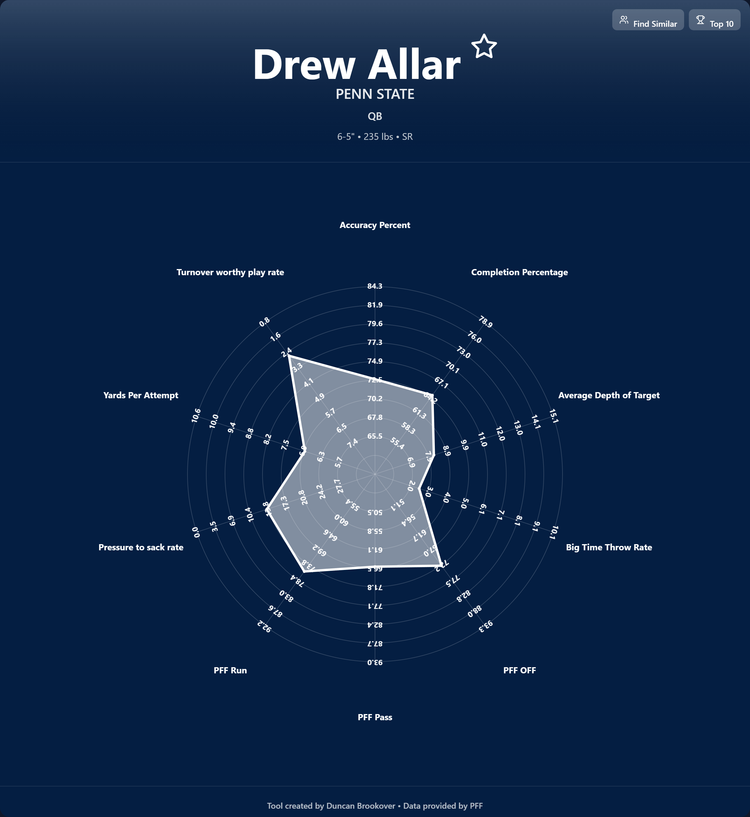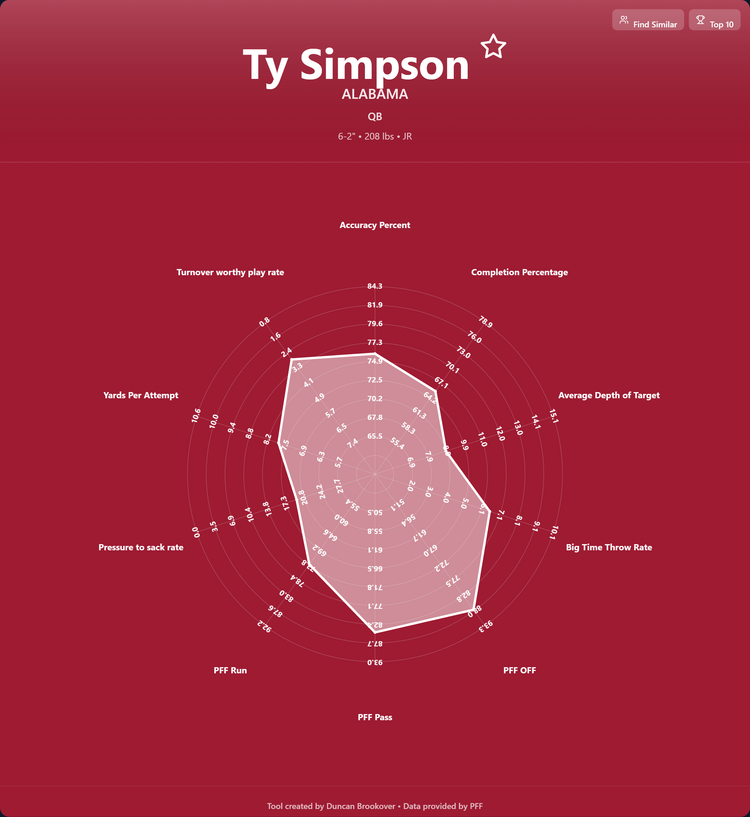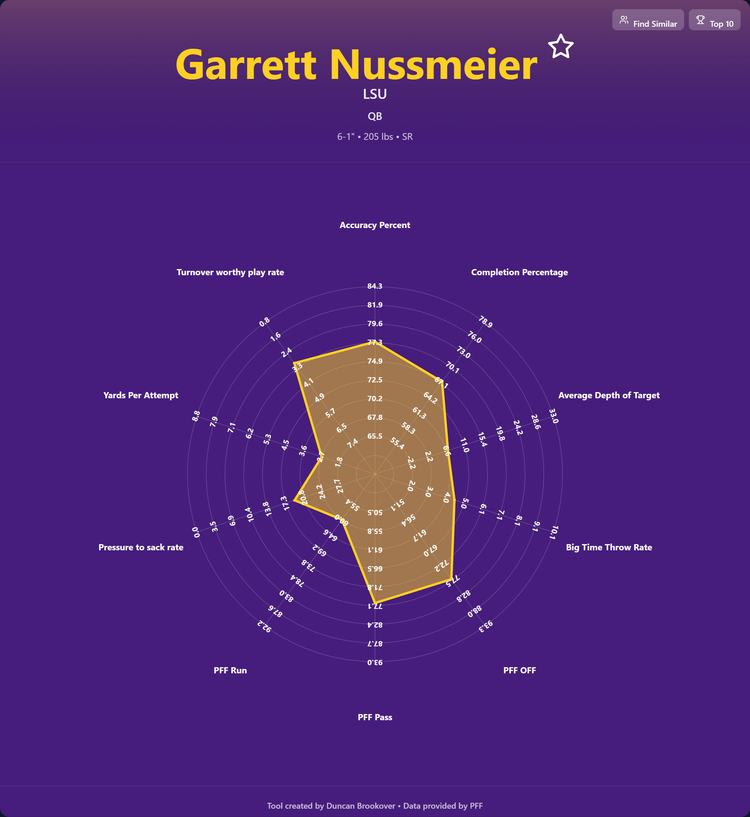Teambuilding 101: Pay for the best

Today, I am taking a quick break from my QB prospect profile series to write a different article. A lot of my recent content consumption has led me to wonder where data plays a role in decision-making in sports teams and the value of players. Let’s take a quick step into soccer, which I promise will return to the NFL.
Thanks for reading Duncan Drafts! Subscribe for free to receive new posts and support my work.
The Soccer Bit
Specifically, as a Liverpool FC fan, Florian Wirtz's transfer is about to (maybe already has by the time of publishing) become the most expensive transfer in English soccer history. For those who do not know how this process works, a soccer club can go to any other club and buy out a player's contract, sometimes for set fees that were stated in the initial contract, other times for negotiated sums.
For context, Liverpool is not known for doing this as a club. They rarely spend large sums on transfers and have often been accused of being cheap, with their owners, Fenway Sports Group, looking to maintain a self-sustaining business model for the club. They do this by having been one of the first clubs to have an internal data division that looked for inefficiencies and opportunities in the player market. The head of FSG, John Henry, had a lot of experience doing this with his Moneyball approach that brought the Red Sox to four World Series titles since he bought the team in 2002.
So with that reputation, why would the club sign Florian Wirtz? It’s simple, you pay whatever you must to acquire the top talent when you have the opportunity.
The Football Bit
Now that you see what my brain has been thinking about for the past three weeks, let’s examine how this mantra applies to the Philadelphia Eagles, the reigning Super Bowl Champions.
Total Cash Rankings
Since the Eagles do some real wizardry regarding contracts, looking at total cash makes it a little bit easier to tell how much they are spending on certain players. Here is the breakdown of every starter on the roster not on a rookie contract.
Total Cash Ranking by Position:
Jalen Hurts: 6th most by QBs
Saquon Barkley: Most by RBs
AJ Brown: 5th most by WRs
Dallas Goedert: 15th Most by TEs
Jordan Mailata: 9th Most for LTs
Lane Johnson: 5th Most for RTs
Cam Jurgens: 3rd Most for Cs
Landon Dickerson: 27th most for Gs (though he is in the first year of a 4-year $80 million extension that will rocket him up the rankings)
Zach Baun: 2nd Most for ILBs
When they have a top player, they pay for them.
Acquisition of Top Talent
We all know that, unlike in soccer, you cannot pay to break the contracts of NFL players on other teams to have them come and join your team. There are only three ways to acquire players: through trades, free agency, and, most importantly, the draft.
I mentioned earlier the necessity of being aggressive in the acquisition of talent, and you can see that in all of those players who signed for a lot of money, too.
Jalen Hurts: Drafted with a 2nd round pick when the team already had a starter in Carson Wentz
Saquon Barkley: Free Agency
AJ Brown: Traded a 1st and 3rd-round pick
Dallas Goedert: Drafted with a 2nd round pick that was acquired in a trade, when the team already had Zach Ertz as its starter
Jordan Mailata: Drafted in the 7th round in a pick that was acquired in a trade
Lane Johnson: Drafted 4th overall
Cam Jurgens: Drafted in the 2nd round, eyed to be the successor at C to Jason Kelce
Landon Dickerson: Drafted in the 2nd round, eyed to be the successor at C to Jason Kelce
Zach Baun: Free Agency
If you include the rest of the starting roster, you can see just how aggressive Howie Roseman and the Eagles have been.
DeVonta Smith: Drafted 10th overall with a pick that was acquired in a trade
Jahan Dotson: Acquired via trade for a 5th round pick
Tyler Steen: Drafted with a 3rd round pick that was acquired in a trade
Jordan Davis: Drafted 13th overall
Jalen Carter: Drafted with a 1st round pick that was acquired in a trade
Nolan Smith: Drafted 30th overall
Jalyx Hunt: Drafted with a 3rd round pick that was acquired in a trade
Jihaad Campbell: Drafted with a 1st round pick that was acquired in a trade
Cooper DeJean: Drafted with a 2nd round pick that was acquired in a trade
Quinyon Mitchell: Drafted in the 1st Round
Kelee Ringo: Drafted with a 4th round pick that was acquired in a trade
Reed Blankenship: UDFA
Andrew Makuba: Drafted in the 2nd round
The Eagles were rarely happy to stay in place and let talent fall to them; instead, they stayed aggressive in their accumulation of talent. When they saw top talent, they made sure to pay for it.
The lack of a Middle Class
This has also led to the Eagles not bothering to compete for what is often referred to as the NFL’s middle class. Think of the Jerry Jeudy $17 million a year contracts that are right in line for good, but not elite WRs. The only contract on the entire team that could be classified as middle class is Dallas Goedert, and it would be reasonable to argue that the contract is fair market value for someone of his abilities.
It can also be seen in the moves the Eagles made this off-season. They let Josh Sweat and Milton Williams walk out the door for contracts that looked like they would end up in the middle class (Milton Williams ended up getting PAID but we will see if it was worth it). Then they traded one of the last middle class contracts they had in CJ Gardner-Johnson to the Texans for Kenyon Green (on a rookie deal) and a pick swap.
What does it all mean?
Pay great players and be as aggressive as you can be to go acquire them. The Eagles seem to think that middle class contracts provide significantly less value than rookie deals and the most expensive deals. They just won a Super Bowl with this approach, and it remains to be seen if it is a sustainable model in the long run, but it might not be a good idea to try and replicate it.
P.S. I know this does not talk about the value of rookie deals and of the draft in general, but I will save that for another day.
